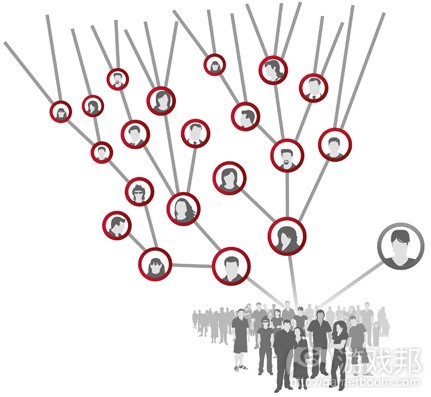开发者需以日本为鉴 鼓励分享和公开信息
作者:Brandon Sheffield
毋庸置疑,如今的西方游戏已经主导着整个掌机游戏领域。但是很难想象,早在80年代末和90年代初期,所有人都还在热捧日本掌机游戏,而那时候的西方游戏公司还只能够创造出一些授权游戏以及普通的平台游戏。
早些时候,西方游戏公司一方面尝试着效仿日本掌机游戏的设计和风格,一方面也在PC平台上发挥着自己的创造性。如果与同时代的PlayStation游戏相比,《雷神之锤》从图像上来看并未取得突破性的飞跃,但是到了90年代末,PC显然成为了拥有最先进图像效果的平台。
而正是西方游戏公司推动着这种变革。也许在那时看来,设计和发展趋势还未发生太大变化,但是那时西方开发技术已经无可匹敌。在解决了技术问题后,自然需要转向设计。从西方开发者的角度来看,他们也是时候在此施展拳脚了。像《光晕》等游戏的诞生便证明了西方游戏设计和技术的结合能够创造出一种文化现象。
到《战争机器3》正式发行时,从视觉效果来看,日本也已经追赶不上西方游戏的发展了。如果是在1990年,应该没有人能够预见《神秘海域》是来自洛杉矶工作室而非东京的作品吧!
分享信息
早在之前,西方游戏产业就已经不再沉寂了。从1988年开始,游戏开发者便汇聚在一起讨论游戏的艺术创作,并且正是这种讨论才衍生出后来的游戏开发者大会(GDC)。开发者会在会上分享自己所遇到的技术障碍,设计困境等。1994年,《游戏开发者》杂志诞生了,这是一个能够帮助开发者从更广泛的角度且更频繁地了解技术知识的平台。1995年,IGDA(游戏邦注:全球最大的非盈利游戏开发者协会,是美国游戏开发者大会的缔造者,也是目前美国GDC的重要合作伙伴之一)成立。1996年,游戏网站Gamasutra建立。所以在这长达24年的时间里,西方游戏开发者一直在各种官方论坛上分享着彼此的游戏信息,而这也是东方开发者所望尘莫及的。
Ray Nakazato(游戏邦注:《失落的奥德赛》开发商FeelPlus前任总裁,而现在效力于日本THQ工作室)在采访中也表示:“我们真的很担心技术的发展。日本现在已经远远落后于西方国家了,再这么下去我们将更难追赶上他们。很多优秀的技术都是来自美国。你们拥有GDC等大型会议。而我们也建立了CEDEC(类似于美国的CESA,由日本电脑娱乐供应商协会CESA举办的日本游戏开发大会)并希望它能够成为日本的GDC,但是CESA的观点却不以为然,所以CEDEC最终也只能是CEDEC。虽然该大会是仿效GDC模式,但是它们却并不相同。”
他补充道:“日本人并不善于讨论。他们总是害怕公开自己所知道的内容,所以这个国家几乎任何会议都较为含糊且一般化,并且所有会议都属于赞助式或学术性会议。我认为日本产业中的人士都希望听到别人阐述关于游戏制作的内容,但是自己却不愿意多说,如此便造成他们也只能够听到一些学术性或赞助式客套话了。”
但是现在CEDEC的状况日益好转,是日本开发者能够在此更加轻松地谈论自己所遇到的问题。不过关于公司之间或者公司内部的团队之间分享资讯这一方面还是不甚乐观。这就导致了日本很多公司都只能基于自己的观点而非从合作的角度去解决问题,并最终导致现在的落后局面。而西方公司之所以能够如此快速地发展主要也得益于他们彼此间的开放性。
前进与后退
为何会出现这种情况?因为尽管独立开发者和新媒体开发者越来越开放,但是大型发行商却变得越来越闭塞。尽管《使命召唤》,《新维加斯》甚至是Facebook上的《龙腾世纪传奇》开发者可能想在《游戏开发者》杂志上分享自己的游戏信息和技术,但是这些游戏的发行商却在极力压制他们的这种热情。
一些发行商甚至打出了“不能进行公共分享”的政策,而其它发行商则是极度警惕那些分享技术机密的行为。除此之外也有一些发行商允许第三方发行的游戏进行信息分享,但是却不允许第一方发行的游戏这么做。所以我想提醒那些不愿意分享信息的发行商或开发者不要重蹈复辙。
独立,社交和手机游戏正在发生着巨大的进步,而支持这些游戏的工具也是日趋实惠且更加强大。从而,它们形成了一个巨大的市场。从整体来看,独立游戏开发商从中赚取了数百万美元的收益,而应用开发者单单在iTune上就创造了40亿美元的收益(尽管有些收益不是来自于游戏)。从Zynga在首次公开募股中所获得的巨大资金便能够看出这一发展前景。
发行商也许注意到了这种新兴市场会蚕食自己的利益,所以他们便想尽办法往前挤。相同游戏类型的开发者也许也考虑到了公开“秘密信息”会让竞争者得势。有可能这两方面都是事实。但是不管怎么说,保持信息透明有利于游戏产业的发展,相互隐藏只会造成孤立与隔阂。
如果大型游戏发行商(或开发者)希望在这个快速发展的市场中获得成功,他们首先需要明确日本游戏产业现在正在努力纠正的一点;也就是如果他们能够相互协作,他们便能够取得更好的发展。
(本文为游戏邦/gamerboom.com编译,拒绝任何不保留版权的转载,如需转载请联系:游戏邦)
Opinion: Share your knowledge or suffer the consequences
by Brandon Sheffield
Western games have taken over the console game space, there is no denying it. It was tough to imagine this back in the late ’80s and early ’90s, when the common feeling was that all the best console games came from Japan, while Western companies churned out poor licensed titles and jittery platform games.
While Western companies may have struggled to match the design and vision of Japanese games on the console in those early days, they were simultaneously innovating on the PC for as long as the format existed. Quake might not have been a huge leap over the graphics of its PlayStation contemporaries, but by the end of the ’90s, the PC was far and away the most graphically advanced platform available.
And it was Western companies that were pushing this graphical revolution. Perhaps the variety wasn’t there in the design and direction yet, but the tech was becoming peerless. And as tech becomes more of a solved problem, the focus turns to design. When this happened in the West, developers started to really push forward in this arena as well. Games like Halo proved that Western game design and tech had married to create a cultural phenomenon.
By the time Gears of War 3 came out, nothing in Japan could match it visually, and that country’s industry has not, to date, caught up. In 1990, would you have predicted that Uncharted would be made in Los Angeles, instead of Tokyo?
Helping Hand
Even back then, there might have been reason to believe in the Western game industry. Starting in 1988, game developers began to meet to discuss the art of game creation at what would later become the Game Developers Conference. Developers shared their technical hurdles, and design quandaries. In 1994, Game Developer magazine was born, sharing technical knowledge in an even wider (and more frequent) sense. In 1995, the organization now known as the IGDA came to be. Then in 1996, there was Gamasutra. Western game developers have been sharing knowledge with each other in some official forum or another for 24 years – and Eastern developers have yet to catch up.
Ray Nakazato (former president of Lost Odyssey developer FeelPlus, now at THQ in Japan) agreed with this sentiment in an interview we conducted a couple years back. “I’m worried about technology. Japan is already quite behind, and will be more behind,” he said. “A lot of good technology is coming from the States. You have [events like GDC]. I was a founding member of CEDEC [Japanese development conference put on by CESA, which is akin to the ESA in the U.S.], and I wanted to make it the GDC of Japan, but CESA saw it differently. So it became CEDEC. It’s modeled after GDC, but it’s very different.”
“Japanese people are not good at speaking,” he added. “They are afraid of disclosing things, so all the sessions are very vague and generic, and all are sponsored sessions, or academic. I think Japanese industry people want to hear a lot of stuff from people who are actually making games, but they don’t speak much, so all they hear is the academia or sponsored messages.”
CEDEC has gotten better, and Japanese developers do talk in a more casual sense about their problems, typically over drinks and the like. Still, official sharing of information across companies, and sometimes across teams within companies, is often frowned upon. This has led to Japanese companies solving problems individually, instead of collectively, and falling behind as a result. Western companies rocketed forward, propelled by their openness with each other.
Spring forward, fall back
Why bring all this up now? Because, for whatever reason, as indies and new media developers get more open, the big publishers are getting more tight-lipped. Though the developers of Call of Duty, Fallout New Vegas, and even Dragon Age Legends on Facebook would have loved to share postmortems and technical pieces in Game Developer magazine, their publishers put the kibosh on their efforts.
Some publishers have a “no public postmortems” policy, across the board, while others are simply wary of sharing tech secrets. Others are willing to allow third-party published games to have postmortems, but not first-party. I would caution any publisher or developer that is reluctant to share (or in fact is flat-out against the concept) to learn from the above history.
Indie, social, and mobile games are making great strides, as the tools to support them get cheaper and more robust. And they actually make up a huge chunk of the market. Indie game bundles are selling in the millions of dollars, and app developers on iTunes have collectively made $4 billion (though some of those are assuredly not games). Zynga just went live with its huge IPO.
Publishers may be concerned that these burgeoning markets will encroach on their sales, as they try to buy their way into these industries. Makers of games in similar genres may be concerned that revealing the “secret sauce” will allow their competitors to get an edge. And there may be some truth to both of these. But transparency is good for the industry, and walled gardens only isolate and compartmentalize.
If big publishers (and big developers) want to succeed in this rapidly-changing market, they will have to learn what the Japanese game industry is still trying to catch up to; the more we help each other, the better we all become. (source:GAMASUTRA)
上一篇:关于电子游戏未来发展模式的思考








































 闽公网安备35020302001549号
闽公网安备35020302001549号